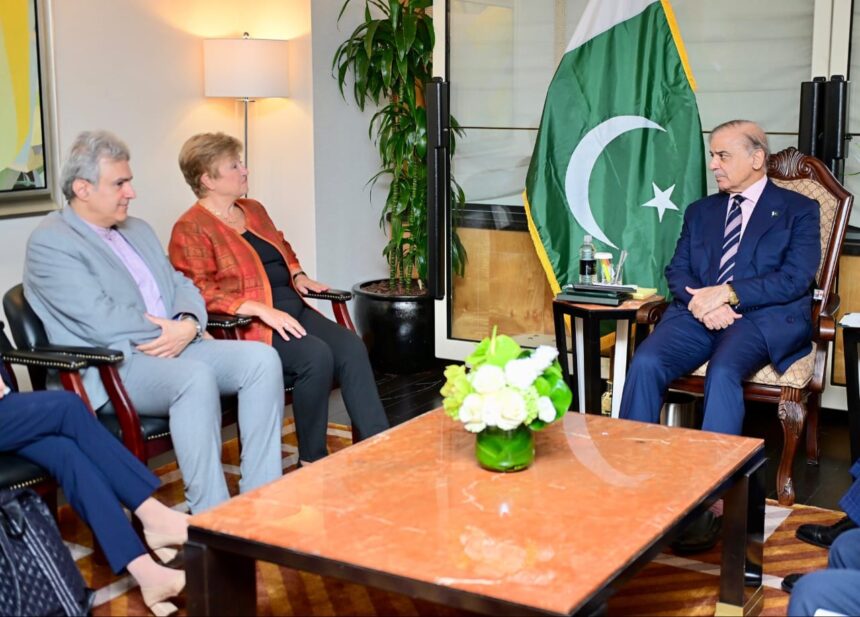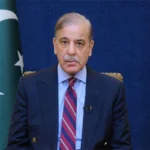The International Monetary Fund (IMF) has agreed to release $1.2 billion to Pakistan after successful talks in Islamabad, praising the country’s steady economic recovery and reform progress. The IMF highlighted Pakistan’s first current account surplus in 14 years, strong fiscal performance, and improved financial stability. Officials in Islamabad hailed the agreement as a global vote of confidence in Pakistan’s economic management and reform commitment.
ISLAMABAD — October 16, 2025 — In a major boost to Pakistan’s economy, the International Monetary Fund (IMF) has agreed to release $1.2 billion following successful staff-level talks in Islamabad. The decision reflects growing international confidence in Pakistan’s ongoing economic reforms, prudent fiscal management, and commitment to stability.
The IMF, in an official statement released overnight, acknowledged that Pakistan’s economic program is “contributing to macroeconomic stability and restoring market confidence.” The staff-level agreement marks another important milestone in Pakistan’s journey toward sustainable recovery after years of financial strain and global challenges.
Background of the Bailout Package
The development comes under the IMF’s $7 billion Extended Fund Facility (EFF) program, approved in July 2024, which was designed to help Pakistan overcome severe external financing pressures and avoid default.
During the latest round of talks, the IMF mission led by Iva Petrova held detailed discussions with Pakistan’s economic team regarding the second review of the 2024 EFF program and the first review of the 2025 Resilience and Sustainability Facility (RSF) — a special fund aimed at climate resilience.
Unlike previous rounds, this phase of negotiations concluded successfully, paving the way for the release of $1.2 billion. The disbursement includes $1 billion under the EFF and $200 million from the RSF, pending formal approval from the IMF Executive Board in the coming weeks.
IMF Praises Pakistan’s Economic Progress
IMF Mission Chief Iva Petrova praised Pakistan’s reform efforts, noting that the country’s economic recovery is “on track despite challenges.” She highlighted several key achievements:
- A current account surplus in FY25 — the first in 14 years.
- Fiscal primary balance exceeding program targets, reflecting improved revenue collection and spending discipline.
- Inflation contained and foreign reserves strengthened, signaling restored market confidence.
- Improved financial conditions, with Pakistan’s sovereign spreads narrowing significantly.
These indicators demonstrate that Islamabad’s tough but necessary reforms — including tax restructuring, energy sector adjustments, and efforts to expand the export base — are beginning to deliver results.
Pakistan’s Perspective: A Step Toward Economic Sovereignty
Officials in Islamabad hailed the agreement as a sign of renewed trust in Pakistan’s economic direction. Finance Minister Muhammad Aurangzeb described the IMF’s endorsement as “a reflection of Pakistan’s resilience and disciplined economic management.”
He added that Pakistan’s focus remains on stabilizing the economy, boosting growth, and protecting vulnerable communities through targeted subsidies and social protection programs.
“The agreement is not merely about funding; it’s about credibility,” the minister said. “It shows that global institutions recognize Pakistan’s commitment to reform, sustainability, and transparency.”
Looking Ahead: Reform Momentum and Investment Confidence
With this latest release, Pakistan’s foreign reserves are expected to strengthen further, helping stabilize the rupee and attract renewed investor interest. Economic experts note that sustained reform momentum, improved governance, and policy continuity could turn 2025 into a year of recovery and renewed growth for Pakistan.
The government also plans to channel part of the RSF funding toward climate resilience projects, addressing Pakistan’s vulnerability to floods, droughts, and energy transition challenges — a key priority under the IMF’s sustainability framework.
Conclusion
The IMF’s decision to release $1.2 billion underscores the success of Pakistan’s reform program and signals a turning point for the economy. With stability returning to markets, fiscal discipline taking root, and international partners expressing confidence, Islamabad appears poised to move from crisis management toward long-term economic renewal.
Discover more from JUST UNTOLD STORY
Subscribe to get the latest posts sent to your email.








